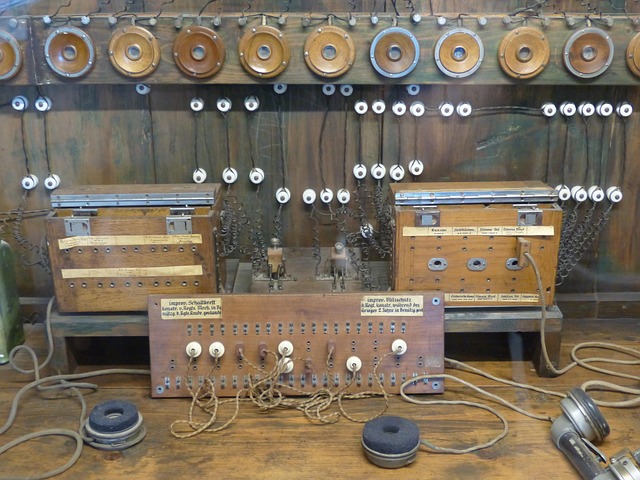Private divorce mediation offers a confidential alternative to public litigation, prioritizing secrecy over court exposure. It facilitates open communication, enables mutually agreeable solutions on sensitive topics like child custody and asset division, and streamlines the divorce process while preserving privacy and dignity. This approach is key in family law disputes, promoting trust and informed decision-making through secure financial disclosures and robust privacy measures for real estate and joint property matters.
Confidential divorce mediation offers a discreet and secure path for couples seeking resolution. In this process, sensitive details remain strictly confidential, providing a safe space to navigate complex family and financial matters. This article explores the significance of privacy in family law disputes, delving into how confidential mediation safeguards personal information while fostering mutual agreements. Discover the benefits of this approach, from financial disclosures to building trust, ensuring a discrete resolution to marital issues.
- Understanding Private Divorce Mediation: Safeguarding Sensitive Information
- The Benefits of Confidentiality in Family Law Disputes
- How Mediation Keeps Personal Details Private
- Financial Disclosures and Privacy Measures
- Building Trust Through Mutual Agreements
- A Discrete Approach to Resolving Marital Issues
Understanding Private Divorce Mediation: Safeguarding Sensitive Information

In the sensitive realm of divorce, where emotions run high and personal matters are on full display, private divorce mediation emerges as a crucial alternative to traditional litigation. This specialized process prioritizes discretion and confidentiality, ensuring that intimate details of a couple’s separation remain private. During mediation sessions, couples work together with an impartial mediator who facilitates open communication and helps them reach mutually agreeable solutions without the need for a court trial.
One of the key benefits of private divorce mediation is its ability to safeguard sensitive information, such as financial records, property equity distribution, and personal assets. Unlike courtroom settings where documents are publicly disclosed, mediation encourages parties to maintain control over their affairs. This includes discussions around asset split planning and real estate division mediation, allowing for a more collaborative approach to dividing marital property while minimizing potential conflicts and preserving relationships, if possible.
The Benefits of Confidentiality in Family Law Disputes

In family law disputes, maintaining confidentiality is paramount to preserving privacy and dignity for all involved. Private divorce mediation offers a secure environment where sensitive information regarding family dynamics, financial assets, and personal affairs can be openly discussed without fear of public exposure. This discreet approach allows couples to navigate complex issues such as child custody, spousal support, and the division of assets in a manner that respects their privacy rights.
Confidentiality facilitates honest and transparent communication, enabling mediators to help couples make informed decisions about crucial matters like joint property dissolution and property equity distribution. By keeping discussions private, spouses can focus on finding mutually agreeable solutions rather than engaging in public battles. This not only streamlines the divorce process but also fosters a sense of cooperation and shared responsibility for shaping their future lives post-mediation.
How Mediation Keeps Personal Details Private

Confidentiality is a cornerstone of mediation processes, especially during divorce negotiations. When couples choose private divorce mediation, they establish a safe and secure environment to discuss sensitive matters openly. Unlike court proceedings where documents are publicly filed and information is accessible to anyone, mediation keeps personal details behind closed doors.
Mediators act as impartial third parties, ensuring that both individuals involved feel comfortable sharing their financial records, assets, and personal history. This includes discussions on property equity distribution, joint property dissolution, and investment separation help. The mediator’s role is to facilitate a mutually agreeable outcome, all while maintaining strict confidentiality, allowing couples to navigate the complexities of divorce with dignity and privacy preserved.
Financial Disclosures and Privacy Measures

In private divorce mediation, financial disclosures are a critical component of ensuring transparency and fairness. Couples in the process are encouraged to share detailed information about their assets, liabilities, income, and expenses. However, this sensitive data is protected under strict confidentiality agreements. Mediators are bound by ethical rules and professional conduct standards that guarantee privacy, ensuring that financial details discussed during sessions remain strictly confidential. This approach fosters an environment of trust, allowing couples to openly address complex financial matters without fear of public exposure.
Furthermore, the mediation process includes robust privacy measures for various aspects, including real estate division mediation and joint property dissolution. Mediators use secure communication channels, encrypted documents, and safe digital storage systems to safeguard personal and financial information. The goal is to facilitate a collaborative decision-making process regarding property equity distribution while maintaining the dignity and privacy of each spouse. This level of discretion encourages couples to actively participate in negotiations, aiming for mutually beneficial agreements without external pressures or judgments.
Building Trust Through Mutual Agreements

In the context of private divorce mediation, building trust is paramount. By fostering an environment where sensitive information remains strictly confidential, couples can openly discuss their financial and personal matters without fear of exposure. This trust is further solidified through mutual agreements, which become the cornerstone for a successful resolution. When both parties are satisfied with the outcome, it strengthens their commitment to abide by the terms set forth, creating a foundation of integrity and respect.
Mutual agreements not only facilitate the process of joint property dissolution but also offer investment separation help and asset split planning. These arrangements ensure that each spouse receives a fair share while minimizing conflict. The privacy afforded by private divorce mediation encourages transparency, enabling couples to make informed decisions together, ultimately leading to a more amicable and lasting resolution.
A Discrete Approach to Resolving Marital Issues

In the delicate matter of ending a marriage, privacy is often an overlooked yet paramount concern. Traditional divorce processes can be publicly documented, exposing intimate details and sensitive financial information. However, with confidential divorce mediation, couples take a discrete approach to resolving their marital issues. This specialized service ensures that all discussions and agreements remain strictly private.
Mediation offers a more controlled environment where spouses can negotiate crucial aspects like property equity distribution, asset split planning, and investment separation help without the prying eyes of public records. By fostering open communication in a confidential setting, couples can make well-informed decisions, ultimately leading to mutually agreeable outcomes.
